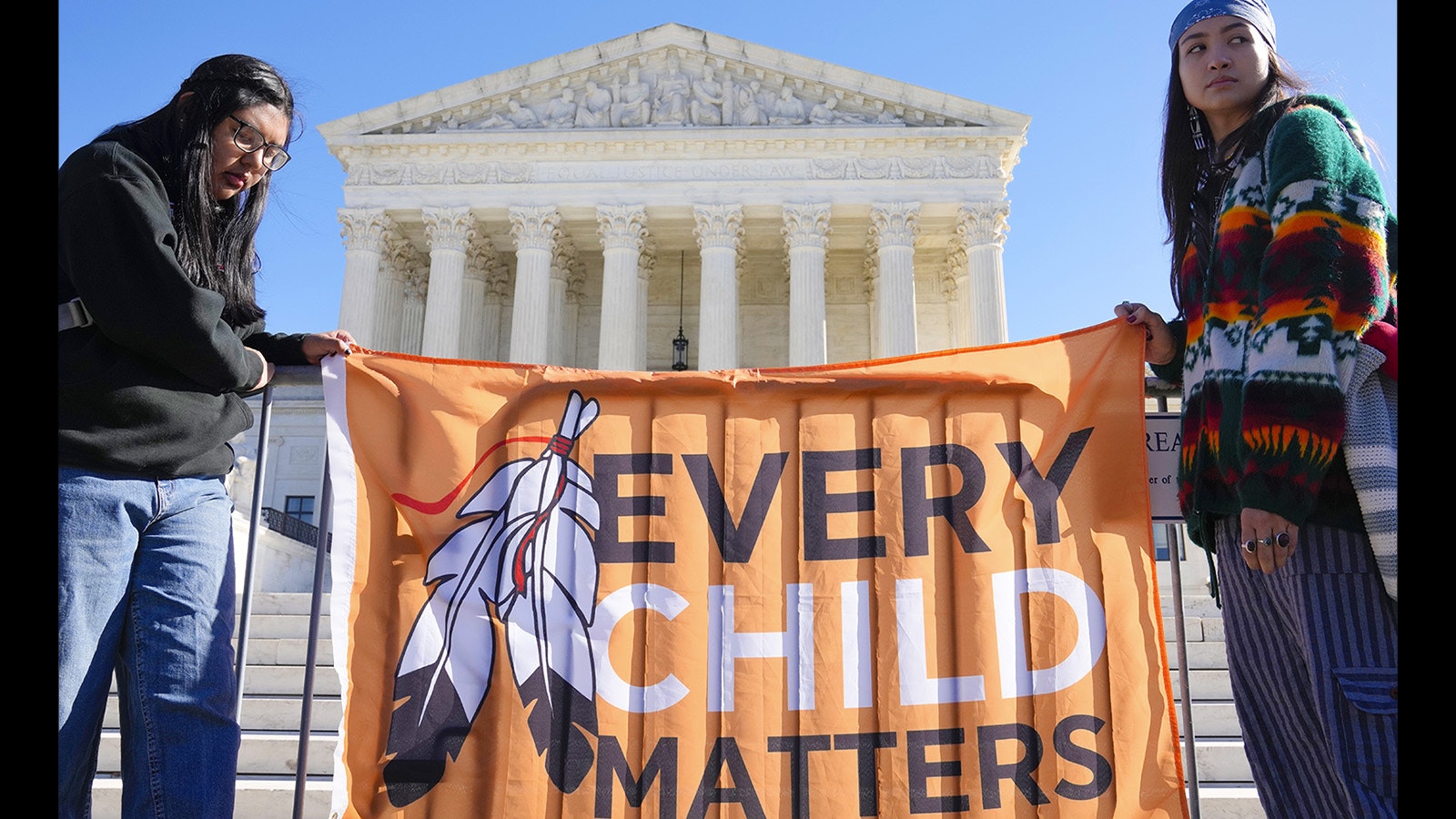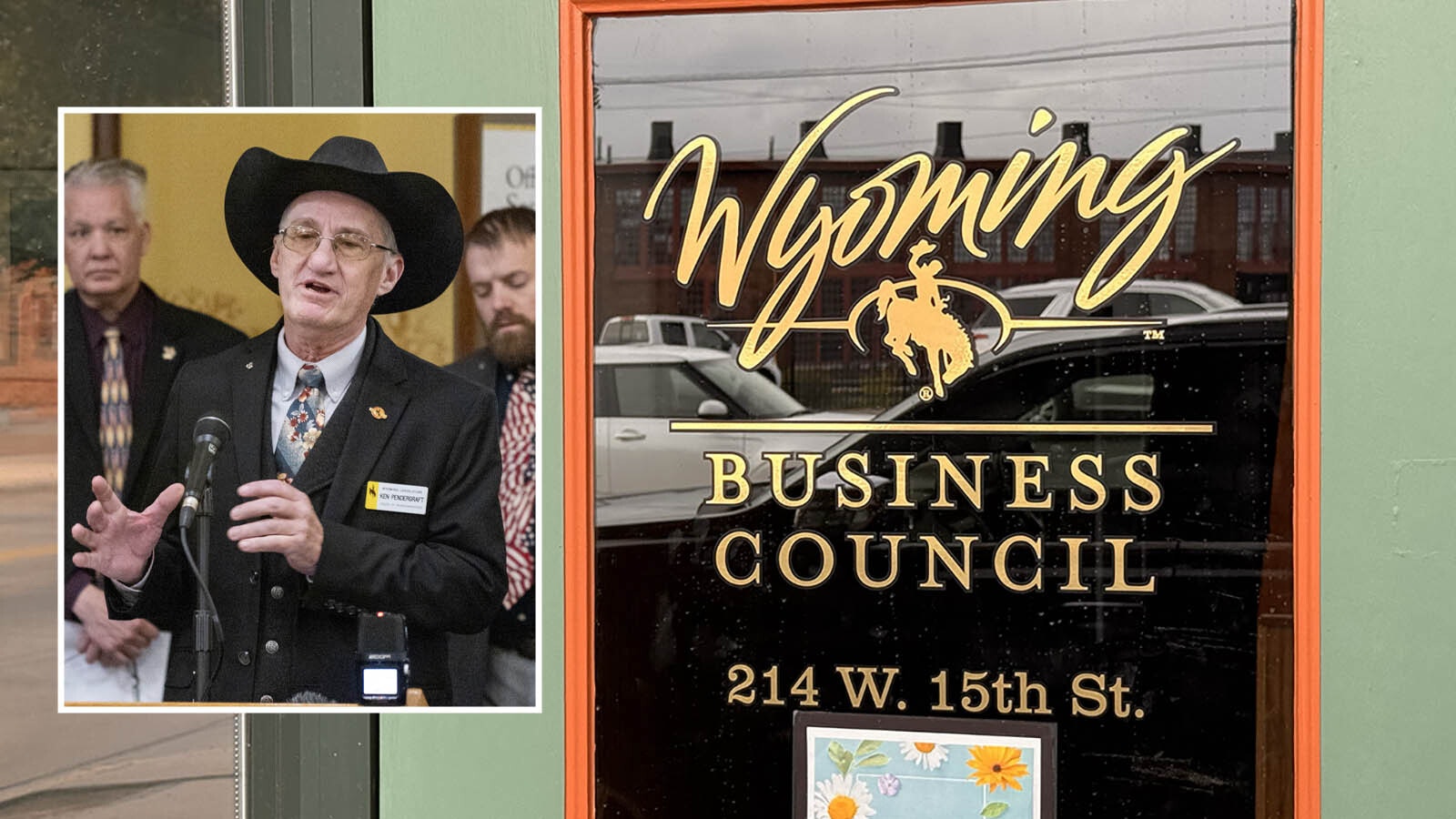A bill that would make a Wyoming version of a federal law designed to keep American Indian children out of non-Indian foster homes has passed the House Appropriations Committee with only one opposing vote.
Senate File 94 would make a Wyoming version of the Indian Child Welfare Act, a 1978 federal law giving Indian tribes jurisdiction and intervention rights over child custody disputes involving native children.
The law makes non-native families a last resort for foster children, mandating instead that children should be placed with a family member, a tribal member, with any other Indian family or with an Indian organization before being housed in a non-native home.
It applies to children who live off the reservations of their tribes of descent, allowing tribes to reclaim children who in some cases live hundreds of miles away from their ancestors’ reservation.
In Case It’s Unconstitutional
Sen. Affie Ellis, R-Cheyenne, told the House Appropriations Committee during its Tuesday meeting that she hopes for the state ICWA to bridge a gap of “confusion” that could disrupt state and tribal custody proceedings if the U.S. Supreme Court overturns the federal law.
The high court is considering whether the federal ICWA law is racially discriminatory, or whether it is an overreach of federal power. It could decide the case by June.
Ellis said she doubts the high court will declare the law racially discriminatory since Congress for generations has treated Indian tribes as political, not racial, entities.
Ellis said she hopes to see Wyoming adopt its own ICWA in case the federal law is overturned as an overreach of federal power. She said keeping the law in place will keep Indian kids from “slipping through the cracks” of confusing custody situations and will keep them from harm.
“The more we get (this) wrong, the kids are the ones that are going to suffer,” said Ellis.
Alternately, the high court could uphold the law altogether.
‘That’s Different From The Best Interests Of The Child’
Rep. Clark Stith, R-Rock Springs, was the lone opponent of the bill and disputed Ellis’ claim that not having it in place will cause children to suffer. He said the ICWA law places tribal political objectives above children’s best interests.
Most child custody law prioritizes children’s best interests, said Stith.
“But ICWA makes a slightly different choice. ICWA says, ‘Look, we care about the best interest of the child, but what matters most is placing the child with extended family, other members of the child’s tribe or other Indian families,’” he said. “And that’s different from the (legal standard of the) best interests of the child.”
Stith’s reasoning matches one of the many arguments that non-native foster families have launched against the law in their Supreme Court challenge.
Stith asked Ellis if it would be better to wait and see what the Supreme Court does.
Ellis disagreed, emphasizing that the federal ICWA was written in 1978 to combat harsh government assimilative policies that forced Indian children to behave like white children and, in many cases, separated them from their families.
Ellis said the law is designed “to prevent … automatic assumptions that placement outside of an Indian home is always going to be better for a child.”
Beyond A Reasonable Doubt
Stith also rebutted Ellis’ statement that passing a state ICWA would merely limit confusion in custody courts and agencies.
“This issue is not whether people are confused,” said Stith, pointing to a provision of the law that could prevent courts from terminating parental rights of unfit parents of native children. “The federal government in 1978 thought it was a good idea to have a beyond-a-reasonable-doubt standard for termination of parental rights for Indian children. The issue is, is that a good idea for us here?”
ICWA makes it legally difficult to terminate parental rights for parents whose behavior has provoked child custody cases. But that difficulty is compounded also by several tribes’ unwillingness to agree in court to terminate parental rights of their tribal members.
This results permanency issues for some children. ICWA critics highlight cases in which children come to know a long-term guardian family as their own, only to be transferred later back to biological parents who may have lost their parental rights if the case had been handled in a state, not tribal court.
“And it just seems very odd,” continued Stith, “in a termination of parental rights situation to have a beyond-a-reasonable doubt standard because it seems like as a practical matter, (termination) just won’t happen.”
But Ellis and Stith both acknowledged that if the committee were to remove from the bill that high standard for terminating parental rights, the bill would be inconsistent with the federal ICWA. That would make the state law invalid as long as the federal law remains intact.
Both the Northern Arapaho and Eastern Shoshone Tribal governments support SF 94, and the Northern Arapaho tribal government especially has touted the bill as a means of preserving its sovereignty and keeping Indian children within their respective tribes.
Appropriations Committee members who voted in favor of codifying the federal ICWA as a state law were Republican Reps. Bill Henderson (Cheyenne), Lloyd Larsen (Lander), Tom Walters (Casper), Dave Zwonitzer (Cheyenne) and Nicholas. Democratic Rep. Trey Sherwood (Laramie) also voted in favor of SF 94.
With the 6-1 approval, the bill advances to the House floor and likely will be debated this week for its first House vote.
Hours before the Appropriations Committee debated SF 94, its companion House Bill 19 passed the Legislature with 19-12 approval from the state Senate. HB 19 creates a $40,000 task force to address problems in the new state ICWA law, presumably if the Supreme Court overturns the federal law.





